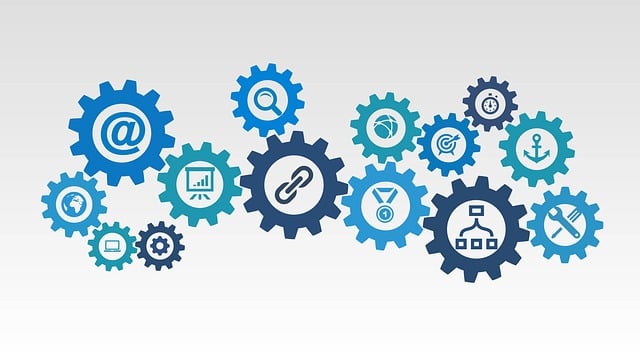AI chatbots for open house registrations are transforming real estate by combining natural language processing (NLP) with machine learning algorithms. These tools automate data collection, provide instant answers and viewing schedules, offer dynamic market insights, predict pricing trends, and tailor recommendations. They streamline initial buyer interactions, analyze historical sales and property data to improve valuation accuracy, and free up agents to deliver personalized guidance. AI chatbots represent a significant advancement in real estate, enhancing efficiency and prediction power for informed transactions.
“Revolutionize your residential real estate game with AI predictive pricing models. In today’s digital era, AI chatbots are transforming open house registrations, offering a seamless experience for potential buyers. This article explores how these innovative tools can drive market analysis and predict prices with remarkable accuracy.
From understanding chatbot interactions to building sophisticated predictive algorithms, we delve into the strategies that keep real estate professionals ahead of the curve. Discover the benefits of integrating AI into your market analysis routine.”
- Understanding AI Chatbots for Open House Registrations
- Building Predictive Pricing Models with AI
- Integrating AI into Residential Real Estate Market Analysis
Understanding AI Chatbots for Open House Registrations

AI chatbots for open house registrations are transforming the way real estate agents engage with potential buyers and sellers. These innovative tools leverage natural language processing (NLP) to facilitate seamless communication, providing a more personalized and efficient experience for all parties involved. By integrating AI chatbots on their websites or during open houses, real estate professionals can collect valuable visitor data, answer common questions, and even schedule viewings instantly.
This technology goes beyond simple information gathering; it offers a dynamic interaction that enhances the overall customer journey. Chatbots can provide real-time market insights, predict pricing trends based on historical data, and offer tailored recommendations. This predictive capability not only aids in setting accurate listing prices but also allows agents to anticipate buyer preferences, ensuring they’re offering relevant properties to the right audiences.
Building Predictive Pricing Models with AI

Building predictive pricing models with AI is transforming the residential real estate industry, enabling agents to offer more accurate and competitive valuations. By leveraging machine learning algorithms, these models analyze vast datasets, including historical sales data, property features, market trends, and even socio-demographic factors. This comprehensive analysis allows for a deeper understanding of the housing market, resulting in improved pricing strategies.
AI chatbots for open house registrations play a crucial role in this process by streamlining the initial customer interaction. They can collect valuable information from prospective buyers, such as their preferences, budget ranges, and expected features, which are then fed into the predictive model. This integration ensures that pricing suggestions are tailored to specific buyer profiles, enhancing the overall efficiency and effectiveness of the real estate valuation process.
Integrating AI into Residential Real Estate Market Analysis

The integration of Artificial Intelligence (AI) into residential real estate market analysis has opened up new avenues for predicting pricing trends and enhancing overall efficiency. AI chatbots, for instance, have emerged as powerful tools for streamlining open house registrations, a crucial step in the buying process. These intelligent virtual assistants can handle initial customer interactions, collect relevant data like contact details and preferences, and provide preliminary insights into potential properties. By automating this phase, real estate agents can focus more on personalized guidance and building client relationships.
Furthermore, AI algorithms can analyze vast datasets of historical sales, market trends, demographic changes, and geographical factors to identify patterns and correlations that may not be immediately apparent to human analysts. This predictive capability allows for more accurate pricing models, enabling agents and clients alike to make informed decisions in a dynamic market. The combination of efficient data handling and advanced analytical capabilities positions AI as a game-changer in the realm of residential real estate market analysis.
AI chatbots are transforming residential real estate by revolutionizing open house registrations and predictive pricing models. By understanding consumer behavior through advanced algorithms, these AI tools offer more accurate market analysis and precise pricing predictions. Integrating AI into the residential real estate sector enhances efficiency, provides valuable insights, and ultimately benefits both agents and buyers, fostering a smarter and more dynamic real estate landscape.
